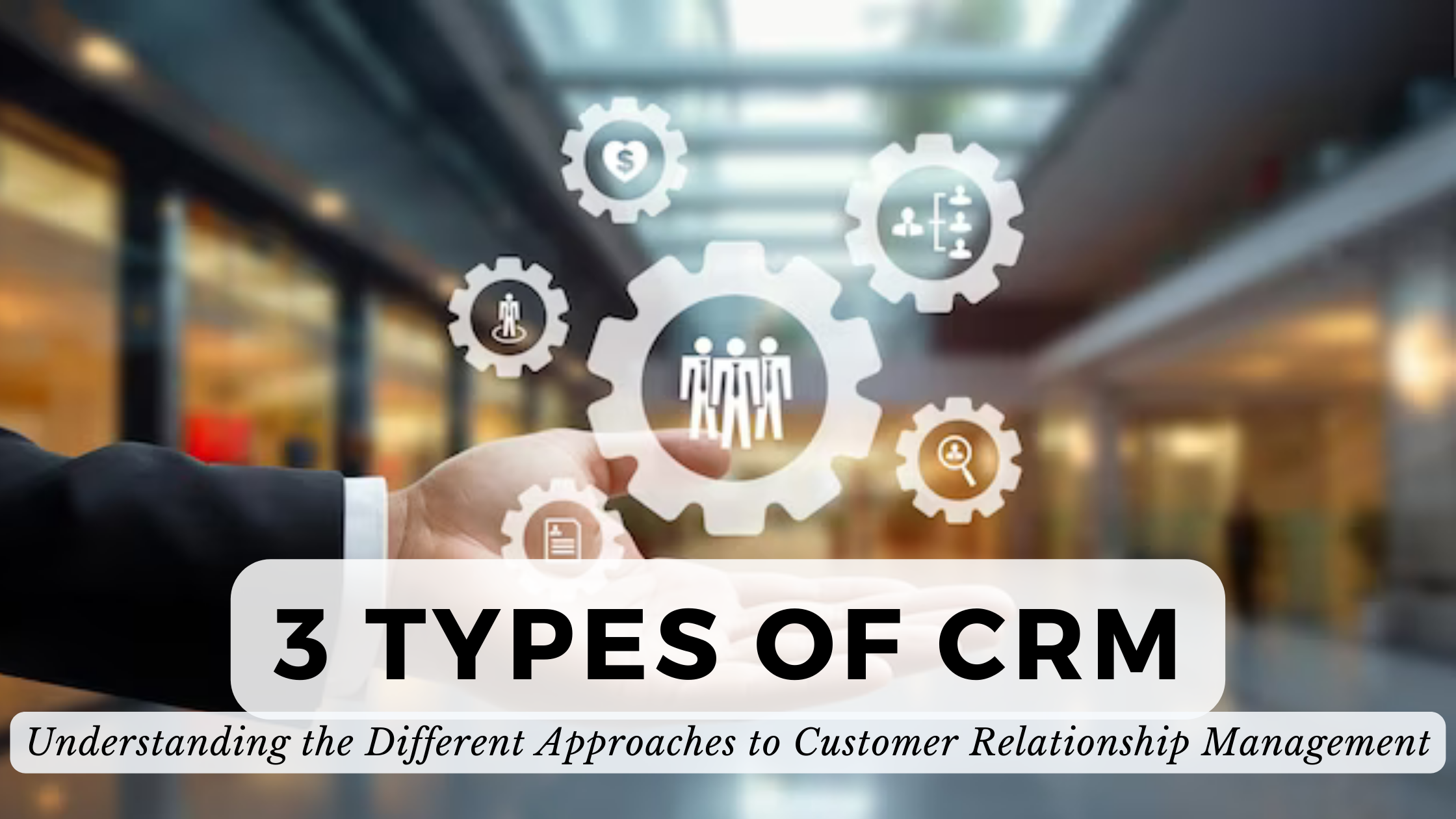3 Types of CRM: Understanding the Different Approaches to Customer Relationship Management
- Proposal Software Customer Relationship Management


3 Types of CRM: Understanding the Different Approaches to Customer Relationship Management
Customer Relationship Management (CRM) is a strategy that companies use to manage interactions with customers and potential customers. CRM helps organizations streamline processes, build customer relationships, increase sales, improve customer service, and increase profitability.
When it comes to CRM, there are three main types that businesses can utilize depending on their needs12:
- Operational CRM: This type of CRM is primarily focused on automating and improving business processes associated with customer-facing operations in the areas of sales, marketing, and customer service12.
- Analytical CRM: Analytical CRM is used to analyze customer data and generate insights about customers, their behaviors, and their interactions with the company. It helps in making better business decisions and in improving customer segmentation and targeting12.
- Collaborative CRM: This CRM focuses on improving collaboration and information sharing among various business units like sales, marketing, and technical support. The main goal is to provide better and more personalized services to customers12.
Each type of CRM serves a unique purpose and choosing the right type can help businesses effectively manage their customer relationships, improve customer satisfaction, and drive business growth.
Relevant SaaS Products for CRM
Here are some relevant SaaS products that offer CRM capabilities:
- Salesforce3: Salesforce is a comprehensive customer relationship management platform that offers a wide range of features for sales, service, marketing, and more.
- HubSpot4: HubSpot offers a versatile CRM system that can accommodate both small teams and startups as well as midsize and enterprise businesses. It’s an especially good choice if you’re looking for a CRM that plugs into your marketing tools.
- Zoho5: Zoho offers a suite of online productivity tools and SaaS applications, including a robust CRM system. It caters to businesses of all sizes, providing solutions for sales, marketing, customer support, and more.
- Microsoft Dynamics 3656: Microsoft Dynamics 365 is a set of intelligent business applications that helps you run your entire business and deliver greater results through predictive, AI-driven insights.
- Pipedrive7: Pipedrive is a CRM platform designed to help sales teams to manage their pipeline effectively. It offers features like email integration, contact management, and much more.
- Freshworks8: Freshworks offers a range of SaaS solutions including Freshsales, a CRM solution designed to enable businesses to attract, engage, and nurture their customers.
- Monday.com9: Monday.com is a work OS that powers teams to run processes, projects, and workflows in one digital workspace, and it includes CRM capabilities.
- Less Annoying CRM10: Less Annoying CRM is a simple, easy-to-use CRM designed specifically for small businesses.
Conclusion
Choosing the right type of CRM system can have a significant impact on a company’s ability to provide excellent customer service and maintain strong customer relationships. By understanding the different types of CRM—operational, analytical, and collaborative—businesses can choose a system that best fits their needs and enhances their customer relationship management efforts.
Relevant links:
- 3 Types of CRMs (and How to Use Them) – SPOTIO
- 3 Types of CRM: Analytical, Operational & Collaborative – SuperOffice
- Salesforce Official Website
- HubSpot Official Website
- Zoho Official Website
- Microsoft Dynamics 365 Official Website
- Pipedrive Official Website
- Freshworks Official Website
- Monday.com Official Website
- Less Annoying CRM Official Website








